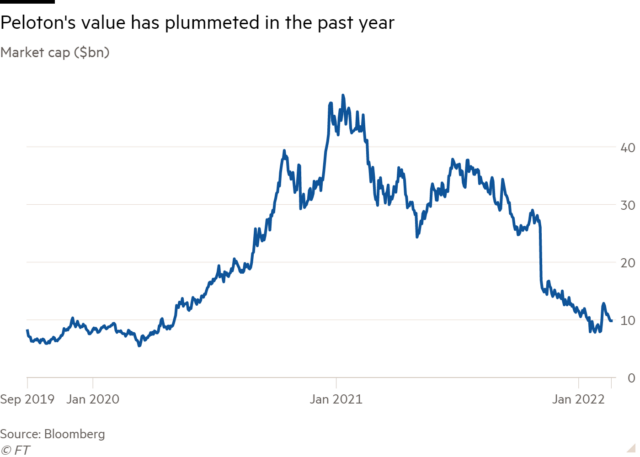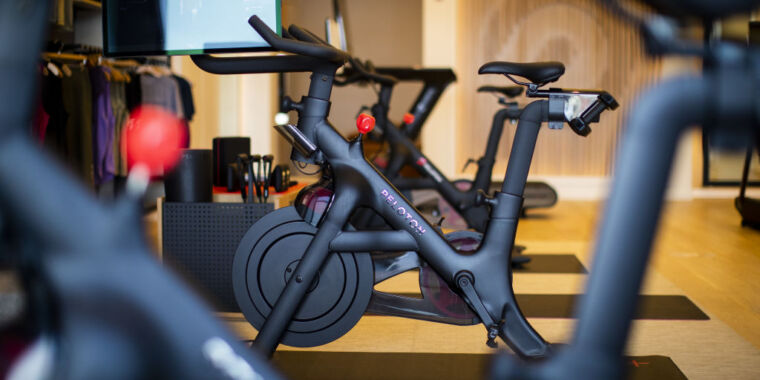
Bloomberg | Getty Images
When Peloton’s stock price began to fall last fall and just months after a costly recall of its affiliate fitness company’s expensive treadmills, executives faced another crisis.
Last September, staff at the Peloton warehouses, which receive high-quality bicycles originally manufactured in Taiwan, noticed that the paint was peeling off some fitness equipment.
The cause was a buildup of rust on “non-visible parts” of the bike — the inner frame of the seat and handlebars — and didn’t affect the integrity of the product, Peloton recently told the Financial Times.
Rather than return the bikes to the manufacturer, executives devised a plan, known internally as “Project Tinman,” to hide the corrosion and shipped the machines to customers who had paid between $1,495 and $2,495 to purchase them.
The project was first unveiled in FT Magazine last week, but eight current and former Platoon employees in four US states have provided more details about the operation.
They described the plan as a nationwide effort to avoid another costly recall just months after the company’s most tragic event: the death of a child over the treadmill’s design.

Bloomberg | FT
Internal documents seen by the FT showed that Tinman’s “standard operating procedures” were that corrosion should be addressed using a chemical solution called “rust converter,” which hides corrosion by reacting “with the rust to form a black layer”. Workers said the plan was called Tinman to avoid terms like “rust,” which executives decided was not in line with Peloton’s brand of quality.
Insiders were also angry over the enactment of a plan they claimed thwarted Peloton’s alleged focus on its users, known as “members,” to create a sense that buyers are more than customers and part of a wider community. community. Tinman also put the spotlight on the company’s quality control process rather than meeting aggressive sales targets in the quest for growth.
“It was the single driving factor in my early stages of hating the company I had fallen in love with a year and a half ago,” said an outbound team leader who reviews products before shipping them to customers.
Peloton said the problem affected at least 6,000 bikes and that 120 employees conducted “rigorous tests” on the devices to conclude that the rust — which it described as “cosmetic oxidation” — “had no impact on performance, quality, durability and reliability of a bike”, or the general member experience.”
The U.S. Consumer Product Safety Commission, which oversaw the recall of Peloton’s treadmill, would not say whether it was notified of the corrosion problem, but said companies must report it if they suspect defects “that could pose a significant product hazard or … unreasonable risk of serious injury or death.”
The company is in turmoil, announcing 2,800 job cuts this month, with co-founder John Foley stepping aside as chief executive. Peloton plans to save $800 million on its annual costs.

